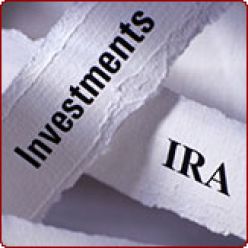Rules Governing Self Directed IRA and Its Structure
Self Directed IRA is an investment plan where in the account holder has control of the investments made on the IRA. The ability to make investments with shares through the IRA is exercised by either the owner (account holder) or the designated advisor (custodian). Basically, a Self Directed IRA is done through brokerage process. This makes all transactions made by the broker or custodian is on behalf of the account holder. Self Directed IRA also is a retirement plan where in it gives you a wide array of investments that you can chose from. Again, since it is a brokerage process, all transactions is exercised by the custodian for the account holder, but the decision still lies on the hand of the account holder
The structure of Self Directed IRA is just a basic one. First, we must know what the applicable investments that are allowed in this kind of plan. The custodians who are handling Self Directed IRA allow account holders to invest in any types of potential investments. Ones you have already chosen the kind of investment you want to purchase or get, the custodian now need to open an IRA account. An IRA account is named after the custodian. After all of these is set, you can now proceed in all the necessary transactions that is need to complete your Self directed IRA.
Self directed IRA also have its rules that are needed to be followed. First and foremost, you are not allowed to invest on life insurances and collectibles. These are investment that is not permitted by the IRS. Any other investments aside from these two are allowed. Self Directed IRA's rule that is applied is well defined in the IRC (Internal Revenue Code). Prohibited transactions are results of dealing or negotiating with a "disqualified party". Sometimes prohibited transactions are also called "Self Dealing". This is where the owner transacts business with a disqualified party. The people defined under "disqualified party" are; your direct family members (the Self Directed IRA owner or his or her spouse), The IRA's direct descendants and ascendants, a business with combined ownership where in 50% or more is owned by a disqualified person, any person that got to do with the IRA or any person working with the IRS.
Self Directed Ira is planned to benefit the owner of the IRA. Self Directed IRA's rule does not allow any activity which is not beneficial to the retirement plan. This type of investment plan cannot sell, lease or exchange any property to any disqualified part neither direct nor indirect. These are some examples of prohibited transactions; if you are using the retirement plan to buy a home for your own personal benefit, you are also not allowed to guarantee any assets of your retirement plan in exchange of a loan, you are also not allowed to sell any investment property to your retirement plan, you are not allowed to loan any money from you IRA your child, you are not allowed to pay yourself any fees from the cash flow that comes from your IRA, you are not allowed to buy any collectibles using your retirement funds, and lastly you are not allowed to purchase any life insurances.
There are many ways where in you can maximize your retirement account without violating the Self Directed IRA's rules. That is why make sure to always be cautious of your decisions.



